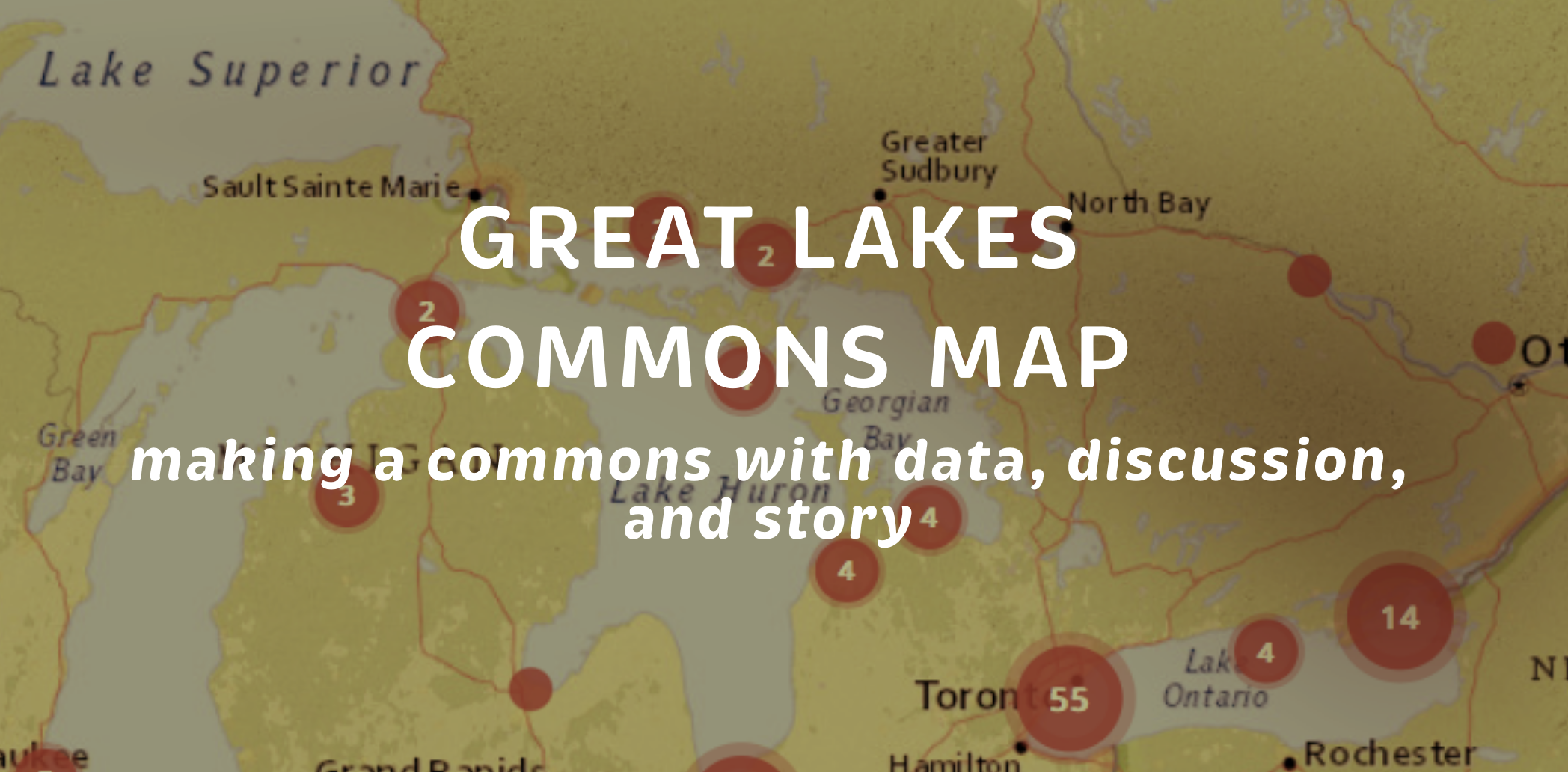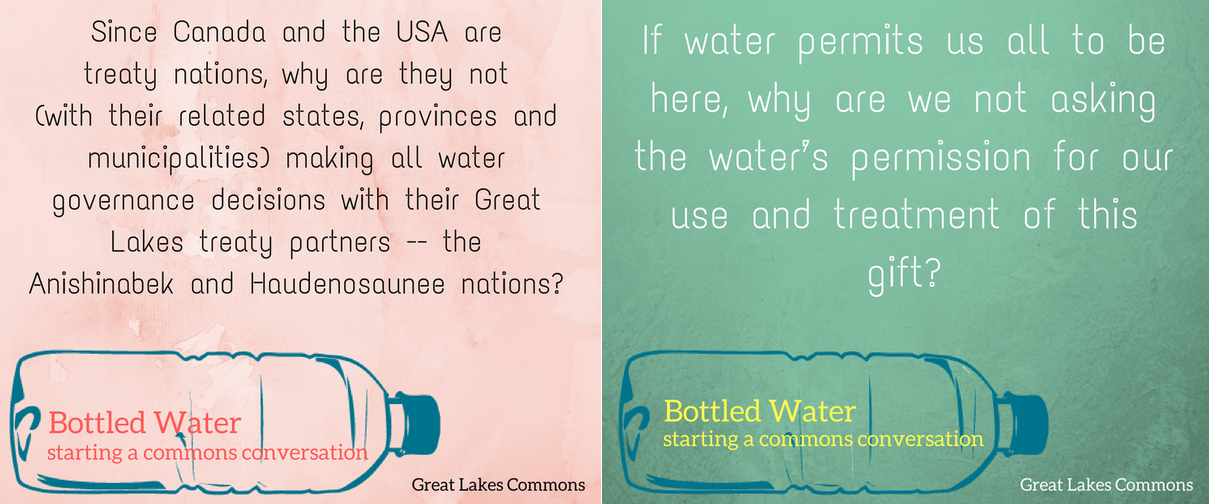The latest episode of the Frontiers of Commoning podcast is now live! This time, I interview Paul Baines, Outreach and Education Coordinator of the Great Lakes Commons, a project that fosters new attitudes and practices toward those massive bodies of endangered water.
The primary strategy of the Great Lakes Commons is not to pursue the usual approaches through the complicated multi-jurisdictional US/Canadian policymaking regime. While a necessary venue for advocacy, these legal and regulatory channels are often a fast track to stalemate. The goal of the Great Lakes Commons is more long-term and structural -- to change culture. It wants to change how people see and relate to the lakes and to each other, which in turn can affect larger motivations for change.
The group’s stated mission is to:
- Awaken & restore our relationship to these incredible waters.
- Activate a spirit of responsibility and belonging in the bioregion.
- Establish stewardship and governance that enables communities to protect these waters forever.
As Baines told me, “I’ve always felt, since my early twenties, that the environmental crisis is not a problem with the environment, but with our culture.” 
So Baines and his colleagues have engaged people who live around the Great Lakes with projects that make them relate to these bodies of water in new ways. Through crowdsourced maps, for example, the Great Lakes Commons has invited people to share memorable personal stories about experiences with the lakes. Their stories are then “pinned” on a digital map indicating where they live, so anyone can browse the map and hear a variety of such stories.
The Great Lakes Commons larger mission is to show people that the lakes are “a revered source of life and a shared and equitable commons” and not a mere “object of management, a measurable resource or a commodity.” To help make this idea more real and public, people are invited to sign the Great Lakes Commons Charter Declaration inspired by the rich traditions within commons and the Indigenous governance of the Anishinabek and Haudenosaunee nations.
Indigenous peoples who live around the lakes have in fact been close collaborators in the Great Lakes Commons. They have brought their ancient rituals and wisdom about the water and building a more diversified community to defend it against misuse. 
Baines in 2017 launched a “currency of care” project that invited people to imagine the value of money as tied to the quality and availability of water to serve life in the Great Lakes basin. The project co-created its own paper bills for people to give to others who have shown a commitment to the lakes. The idea was to create tangible new circuits of gratitude, reciprocity, mutualism, trust, reverence, and friendship related to the lakes.
For more on the Great Lakes Commons, listen to Paul’s spirited explanations of its work!










Recent comments